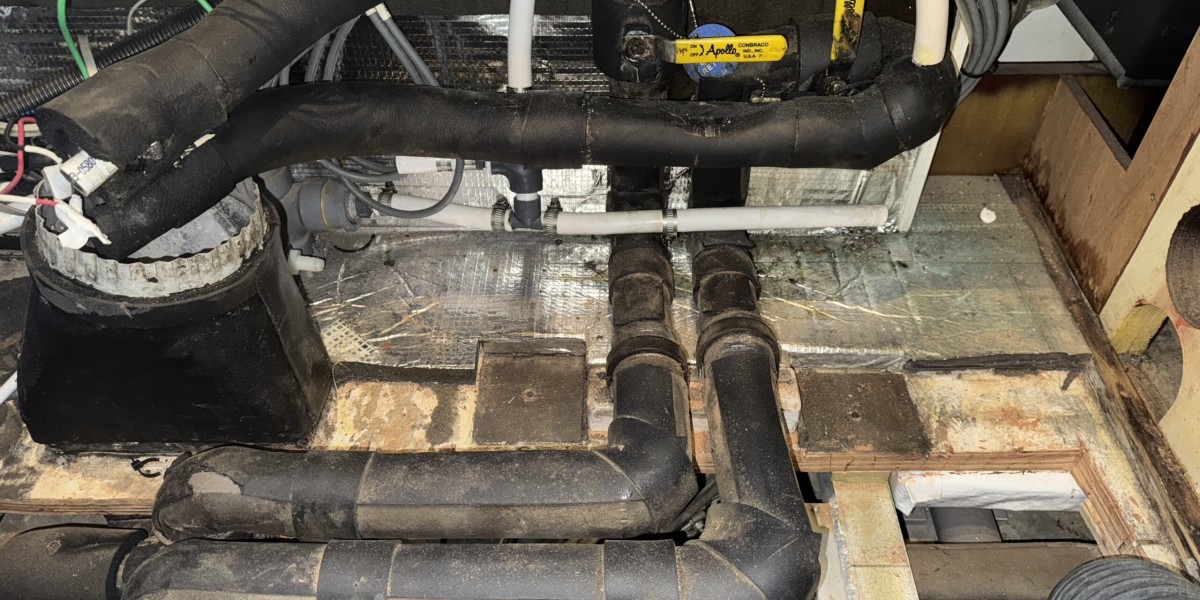Marine insulation plays a crucial role in enhancing the performance, safety, and energy efficiency of vessels. It is a vital element in protecting ships from various environmental and operational stresses, such as extreme temperatures, humidity, and noise. In the highly specialized field of marine services, insulation systems are designed to withstand challenging conditions while maintaining optimal functioning. This article delves into the science behind effective marine insulation systems, exploring their types, benefits, and the innovations shaping the industry today.
What is Marine Insulation?
Marine insulation refers to the material and technology used to reduce the flow of heat, sound, and moisture within a vessel. These systems are essential for both the comfort of crew members and the preservation of the vessel’s structural integrity. Insulation helps to maintain internal temperatures, prevent heat loss, and reduce energy consumption, all while protecting against the effects of extreme marine climates. By incorporating high-performance insulation, marine services can offer vessels enhanced durability and performance over their lifespan.
The Role of Marine Insulation in Vessel Efficiency
In marine services, effective insulation contributes to various aspects of vessel efficiency. The primary role of insulation is to minimize heat transfer, keeping the interior environment of ships at comfortable and stable temperatures. This is particularly important in regions where vessels frequently face extreme weather conditions. By insulating engine rooms, cargo holds, and living quarters, insulation helps regulate temperatures, reduces reliance on energy-intensive cooling and heating systems, and contributes to fuel efficiency.
Thermal Insulation: A Shield Against Heat and Cold
One of the core functions of marine insulation is to provide thermal protection. Thermal insulation materials are designed to resist heat flow, ensuring that heat is retained or blocked depending on the situation. For example, in colder climates, thermal insulation helps prevent freezing in vital systems like pipes and engines, reducing the risk of costly repairs and operational downtime. Conversely, in tropical regions, insulation helps to keep the interior of the vessel cooler, reducing the need for air conditioning systems.
In marine services, various materials are utilized for thermal insulation, including fiberglass, mineral wool, and advanced synthetic materials. Each of these materials has unique properties that make them suitable for different types of vessels and applications. Fiberglass, for example, is lightweight, non-combustible, and provides excellent thermal resistance, making it a popular choice in marine insulation.
Acoustic Insulation: Reducing Noise Pollution
Marine insulation also plays a vital role in controlling noise on board vessels. The hum of engines, air conditioning units, and machinery can lead to a high level of noise pollution, which may cause discomfort for passengers and crew. Acoustic insulation materials are specifically designed to absorb and dampen sound, providing a quieter, more comfortable environment on board.
In marine services, noise reduction is particularly important for luxury yachts, cruise ships, and naval vessels, where comfort and confidentiality are top priorities. Acoustic insulation not only enhances the experience of those aboard but also reduces noise emissions into the surrounding marine ecosystem, helping vessels comply with environmental regulations.
Innovations in Marine Insulation Materials
The marine industry continually seeks new innovations to improve insulation materials, driven by the need for greater energy efficiency, sustainability, and durability. Recent advancements have introduced advanced polymers and composites that offer superior insulation properties, lightweight designs, and long-lasting performance. These materials are often more resistant to water absorption, corrosion, and other forms of wear and tear, ensuring a longer lifespan for insulation systems.
Additionally, eco-friendly materials are gaining traction within the marine services industry, as there is an increasing emphasis on sustainability. Biodegradable and recyclable insulation options are being developed to reduce the environmental impact of ships, especially when they reach the end of their operational life. These materials not only provide thermal and acoustic benefits but also contribute to greener practices within the marine sector.
Benefits of Effective Marine Insulation Systems
The implementation of high-quality marine insulation systems offers several significant benefits. Here are some of the key advantages:
1. Enhanced Energy Efficiency
By effectively insulating a vessel, heat loss and gain are minimized, reducing the need for additional heating or cooling. This leads to lower fuel consumption and improved energy efficiency, which is crucial for reducing operating costs and carbon emissions.
2. Increased Comfort and Safety
Thermal insulation helps maintain a comfortable living and working environment, protecting the crew from extreme temperatures. Acoustic insulation ensures that crew members are not exposed to harmful noise levels, which can contribute to hearing damage or fatigue. These benefits ultimately improve crew productivity and well-being.
3. Protection Against Corrosion
Marine insulation systems, particularly those used in engine rooms and storage areas, also protect against moisture and corrosion. By preventing water from coming into contact with critical components, insulation helps to extend the lifespan of equipment and reduce maintenance costs.
4. Regulatory Compliance
Insulation can also help vessels meet various international and local regulations concerning energy efficiency, noise reduction, and environmental impact. In regions where environmental consciousness is high, the use of advanced insulation materials is often required to comply with safety and environmental standards.
Applications of Marine Insulation Systems
Marine insulation systems are used in a variety of areas across different types of vessels. Some common applications include:
Engine Rooms: Insulating engine compartments helps regulate temperatures and protect equipment from excessive heat.
Cargo Holds: Insulation in cargo holds ensures that temperature-sensitive goods are stored in optimal conditions, preventing spoilage or damage.
Living Quarters: Insulation in living spaces ensures crew and passengers remain comfortable, even in harsh weather conditions.
Piping and Ventilation Systems: Insulation around pipes and ventilation ducts prevents heat loss and condensation, which can lead to corrosion and other issues.
The Future of Marine Insulation Systems
The future of marine insulation systems looks promising, with a continued focus on innovation and sustainability. As the industry moves toward greener solutions, insulation materials will become more efficient and environmentally friendly. New technologies, such as vacuum-insulated panels (VIPs) and phase-change materials (PCMs), are expected to revolutionize marine insulation, offering even greater performance while reducing the overall environmental footprint of vessels.
Additionally, advancements in smart insulation materials are on the horizon, where sensors integrated into insulation systems will allow for real-time monitoring of thermal performance and wear. This will enable marine services to identify potential issues before they become significant problems, improving vessel maintenance and reducing downtime.
Conclusion
In conclusion, the science behind effective marine insulation systems is critical to ensuring the efficiency, safety, and sustainability of vessels. By understanding the key aspects of marine insulation, including its role in thermal and acoustic performance, as well as the materials used, the marine services industry can continue to improve the functionality and longevity of ships. As the industry moves toward more sustainable and innovative solutions, the future of marine insulation looks brighter than ever, offering benefits for both the environment and vessel operators alike.








